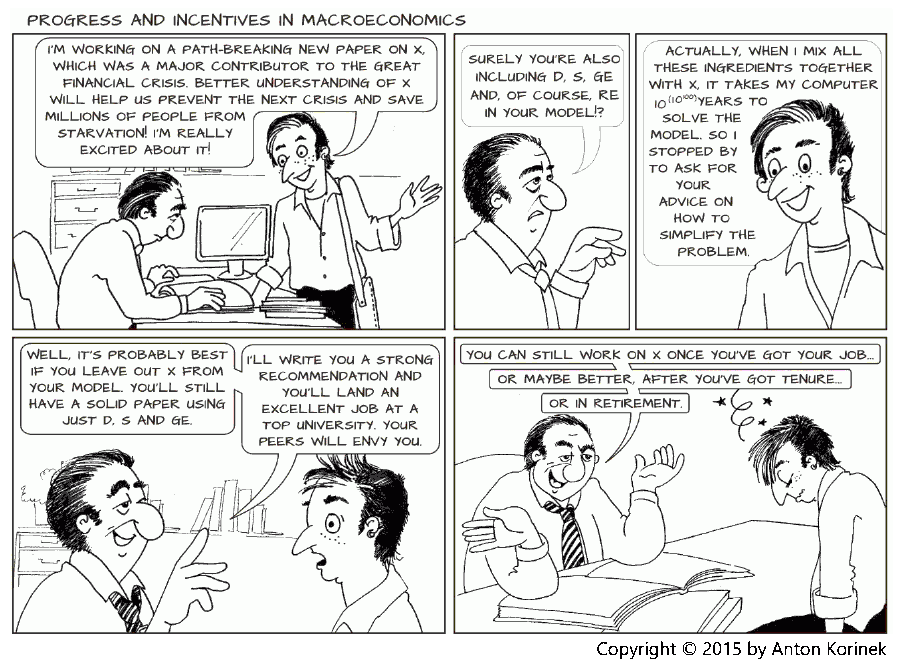Anton Korinek is a Professor in the Department of Economics and at the Darden School of Business at the University of Virginia as well as a David M. Rubenstein Fellow at the Brookings Institution. His current research and teaching analyze the implications of Artificial Intelligence for business, for the economy, and for the future of society. He is also a Research Associate at the NBER, at the CEPR and at the Oxford Centre for the Governance of AI, and he is an editor of the Oxford Handbook of AI Governance.
Professor Korinek’s research focuses on how to make markets work for society. He investigated the mechanics of financial crises and developed policy measures to prevent future crises as well as an influential framework for capital flow regulation in emerging economies. He also studied under what conditions it is advisable for countries to coordinate their policy actions. In his work on Artificial Intelligence, he analyzes how to align the development of AI with society’s values. His research has been published in top journals including the American Economic Review, the Review of Economic Studies, the Journal of Econometrics, the Journal of Monetary Economics, the Journal of International Economics and the Journal of Public Economics. It has also been cited on Bloomberg, in The Economist and in The Wall Street Journal. He has won several fellowships and awards for this work, including from the Institute for New Economic Thinking., the Effective Altruism Long-term Future Fund and the Hewlett Foundation.
Anton Korinek studied economics, math and law at the University of Vienna and worked for several years at the intersection of IT and finance. After earning his Ph.D. in economics from Columbia University in 2007, he held positions at the University of Maryland and Johns Hopkins University and was a visiting scholar at Harvard University, the Bank for International Settlements, the International Monetary Fund, the World Bank, as well as a frequent visitor to numerous central banks, where he has given lectures and courses.


